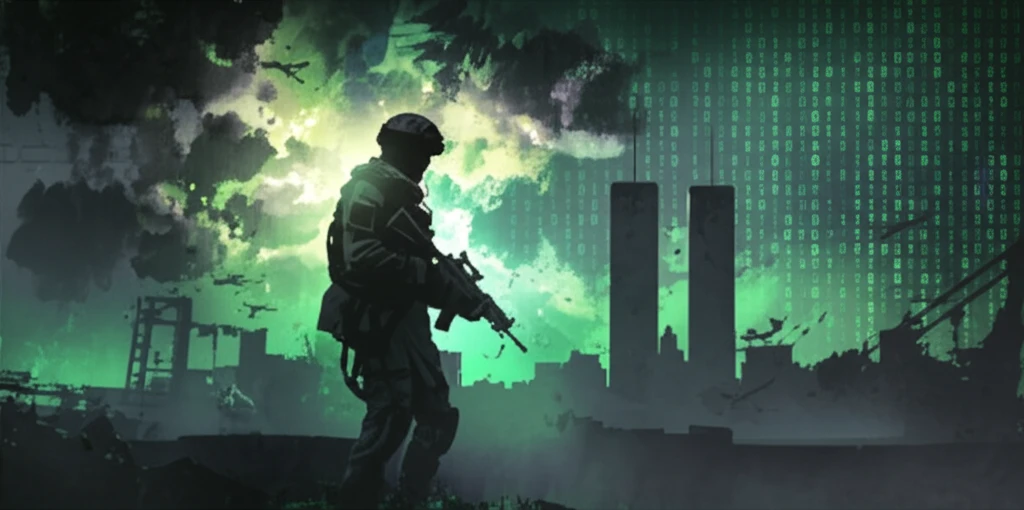![]()
From Pixels to Policy: How Military Video Games Shape Our Worldview After 9/11
"Explore the surprising ways military-themed video games influence perceptions of war, national identity, and real-world conflicts."
The line between entertainment and reality has blurred, especially when it comes to military video games. These aren't just simple shoot-'em-ups; they're sophisticated simulations that put players in the boots of soldiers, offering a visceral experience of modern warfare. After the September 11 attacks, these games took on new significance, reflecting and shaping our understanding of conflict, patriotism, and national identity.
Matthew Thomas Payne's "Playing War: Military Video Games After 9/11," explores this phenomenon in depth. Payne argues that military-themed video games do more than just entertain; they actively cultivate a specific worldview, influencing how we perceive war and its impact. This article will explore the key themes of Payne's work and expand on how military video games contribute to a broader cultural narrative.
We will discuss how games influence our understanding of war and conflict, covering from the nuanced ways these games cultivate our perceptions of national identity and global politics to how games contribute to a potentially problematic glorification of combat. Join us as we explore the complex and evolving relationship between pixels, policy, and public perception.
The Rise of Ludic War: Blurring the Lines Between Play and Reality

Payne introduces the concept of "ludic war" to describe the intersection of military-themed video games, game marketing, and the post-9/11 War on Terror. "Ludic war" suggests that players become "ludic soldiers," immersed in a world of simulated combat that reflects real-world geopolitical tensions. This immersion isn't accidental; it's carefully crafted through game design, marketing strategies, and the pervasive influence of the military-industrial complex.
- Simplified Narratives: Complex geopolitical conflicts are often reduced to simplistic narratives of good versus evil.
- Heroic Individualism: Players are typically cast as heroic individuals who can single-handedly turn the tide of battle, reinforcing a sense of American exceptionalism.
- Technological Determinism: Modern warfare is often presented as a technological showcase, emphasizing the power and precision of military hardware while downplaying the human cost of conflict.
A Call for Critical Engagement
Military video games are not mere entertainment; they are cultural artifacts that reflect and shape our understanding of war, national identity, and global politics. By critically examining the narratives, mechanics, and marketing strategies of these games, we can gain a deeper understanding of their influence and promote more informed discussions about the realities of conflict in the 21st century. It is also important to recognize that games are made for entertainment, so they are most likely to appeal to the masses if they are simple and fun, but in doing so the messages they preach may be diluted.
